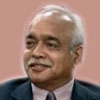The Hangzhou Summit of the leaders of world’s most influential countries closed with the conventional Communique which conveyed to the people of the member countries of the Group of 20 its resolve to join hands to fight terrorism “ in all forms and manifestations”. The affirmation on fighting terrorism by the group which included India, China, Russia, Germany, the US and several other developed and developing nations, has come about at a time when the world is facing increased threat of terror across all the continents and in most countries, be in Europe, the US, South Asia or South East Asia.
While the Indian delegation would have surely worked hard on the final Communique of the two-day Summit that concluded in the home town of Chinese e-commerce giant Alibaba, Prime Minister Mr. Narendra Modi, on his part, was quite specific to the point of stating “Indeed one single nation in South Asia is spreading these agents of terror in countries of our region,”. The one single nation was obviously meant to be Pakistan to which reference was made ahead of the United Nations General Assembly (UNGA) and importantly in China which is a close ally of Islamabad. The Prime Minister made this point forcefully not only in his intervention in the concluding session, but also raised the issue of terrorism in his bilateral meeting with President XI Xi Jinping. The unequivocal assertion by India was important in the backdrop of China not backing New Delhi on getting the UN, banned terrorists like Masood Azhar who are harbored by Pakistan.
While the declaration mentioned terrorism posing serious challenges to international peace and ongoing efforts to strengthen the global economy, it listed in detail the risks emanating from this menace to the entire geo-political space. “Challenges originating from geopolitical developments, increased refugee flows as well as terrorism and conflicts also complicate the global economic outlook”.
The second most important aspect covered in the Hangzhou Summit is the deadly mix of corruption and cross-border tax evasion. The issue is crucial to India which is battling the tax evasion, money laundering by corrupt, facing trials but have found sanctuaries different in jurisdictions. The Communique did emphasize the issue. “Recognizing the detrimental effects of corruption and illicit finance flows on equitable allocation of public resources, sustainable economic growth, the integrity of the global financial system and the rule of law, we will reinforce the G20’s efforts to enhance international cooperation against corruption……”
The document went on to say, “We call for ratification by all the G20 members of the United Nations Convention against Corruption and welcome the launch of the second cycle of its review mechanism. We will endeavor to apply effectively the extradition, mutual legal assistance and asset recovery provisions of the above Convention and other applicable international conventions. We endorse the 2017-2018 G20 Anti-Corruption Action Plan to improve public and private sector transparency and integrity, implementing our stance of zero tolerance against corruption, zero loopholes in our institutions and zero barriers in our actions “.
But like on terrorism, even on tax evasion and money laundering, the Prime Minister Mr. Modi went a step extra to reinforce the urgency of the issue. Pressing for elimination of the safe tax havens, the Prime Minister impressed upon the world leaders to “track down and unconditionally extradite money launderers and tax offenders”.
With interest rates in several key economies at zero or sub-zero levels, the world financial markets are flush with liquidity which is not going into the productive manufacturing sector or other key requirements like infrastructure developments, but into the risky stock markets taking valuations to doubtful levels. The G 20 leaders did take note of the development and it augurs well for India because as an attractive emerging market, the Indian markets are also facing excess liquidity which could bring in volatility in the exchange rate as well. “We reiterate that excess volatility and disorderly movements in exchange rates can have adverse implications for economic and financial stability”.
On the issue of climate change, India managed to have its way in the sense that while New Delhi is all for a green planet, it is opposed to harsh deadlines on phasing out fuel subsidies and other measures which could retard growth. Of course, the country is taking aggressive initiatives in clean energy. So, the final G 20 Hangzhou document skipped fixing timelines for such measures.
It was quite apt that the G 20 leaders talked about the power of internet, its fair play and e-commerce as the summit was being hosted in a city which is the headquarter of Jack Ma –owned Alibaba , creating ripples in the virtual world. The topics like net neutrality which have been widely debated, received endorsement of the top leaders.
“We aim to foster favorable conditions for its development and to address digital divide, including through expanded and better and affordable broadband access, flow of information for economic growth, trust and security, while ensuring respect for privacy and personal data protection, investment in the information and communications technology (ICT) sector, entrepreneurship, digital transformation, e-commerce cooperation, enhanced digital inclusion and development of micro, small and medium-sized enterprises (MSMEs). We reaffirm paragraph 26 in the Antalya Communique, commit to offer policy support for an open and secure environment and recognize the key role of adequate and effective IPR protection and enforcement to the development of the digital economy. We welcome the efforts made by The Organization for Economic Co-operation & Development (OECD), IMF, national and other international organizations on the measurement of the digital economy, and recognize that further relevant research and exchange are needed “.
While the G20 meetings and declarations have no legal standing, they do make a difference to the world and the way it needs to be steered for the good of the human kind.





